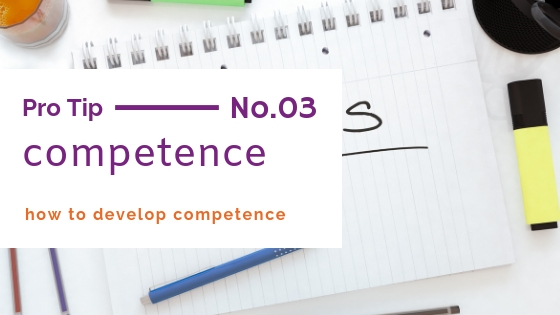Developing competence
Home > Customer Service Training Tips > Developing Competence

Developing competence is a model which will help understand the process of learning and building skills.
It's a four phased process worth studying when you trying to develop a new skill yourself, or training or mentoring others to achieve a higher skill level.
It brings a greater level of understanding about the way we learn and the need for dedication and persistence during the learning process.
Don't be put off by the terminology, these are references to skill levels not a comment on an individual. Originally described as the four stages of learning any new skill, the process has four stages

In skills training it is useful to sketch out this model, so that people can understand how they are learning the skill, and which stage they are at in the model.
It can also help them think through their action plans after the training, based on where they get to in the training. We're often helping people get to conscious competence in the training, it is their action plans and repeated practice which gets them to unconscious competence; the habit is formed.
Here's the four stage developing competence process in full
Unconscious incompetence
The individual neither understands nor knows how to do something.
"We don't know what we don't know"
Put simply they don't know they are doing something wrong or that there is a better way.
They are unlikely to recognize the gap in skills or have a desire to address it because they don't see it as a problem.
Crucially no-one may have pointed this out to them - they may never have received feedback or training in this skill.
Conscious incompetence
Here, while the person does not understand or know how to do something, they recognize the gap but are unsure how to do something about it.
You are likely to notice a reaction in skills training here, when someone has taken on a learning point, tried to put into practice, and haven't managed it. They are recognising or are conscious of their incompetence in the subject / skill area.
This model is really useful here, because if you explain it well and in time, it helps people to stop beating themselves up.
Conscious competence
Here, the person knows how to do something, they understand what they are doing, or they are consciously applying the skill.
They will need to concentrate fully to demonstrate the skill or the knowledge, as they are still internalising their learning.
This is a point that you want to get to on a training course.
However, because it requires repetition and concentration to move to the last phase, you will need to build in support and follow up to get lasting results.
Unconscious competence
Now the individual has been given the opportunity to practice ( either in training or in the workplace ) that they have formed a habit and they can perform the skill easily without thinking too deeply about it.
He or she can also teach it to others. In fact a great way of internalising a skill is to teach other people.
If you liked this page on Developing Competence, you may also find this useful:-
Learning Styles explore the ways in which you can adapt your training based on the learning styles of the people in the group.
Return from developing competence to home page
Find more customer service training ideas by clicking on the links below
Customer Service Training News
Get your copy of DELIVER, so that you can keep up to date with the resources being added to the site.
Sign up TODAY and get a free download of this video
We do NOT share your details with any other company.
More Customer Service Training Tips

Tell us your training challenges - our agony aunt is here to help
Putting together a business case for training
Preparing for a training session
Get your training off to a good start
Using roleplay and simulations to help learning
Overcoming resistance to your training messages
What makes exceptional customer service training?



